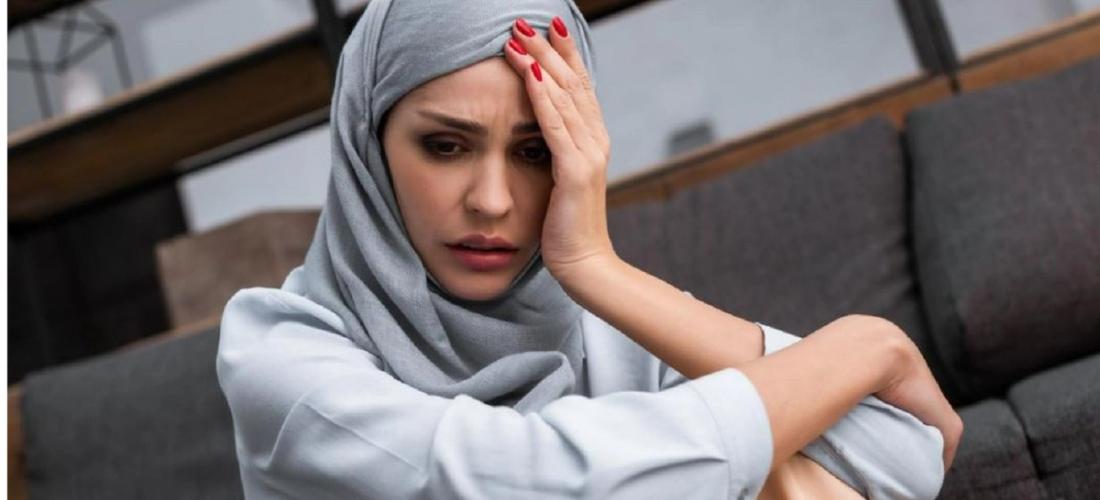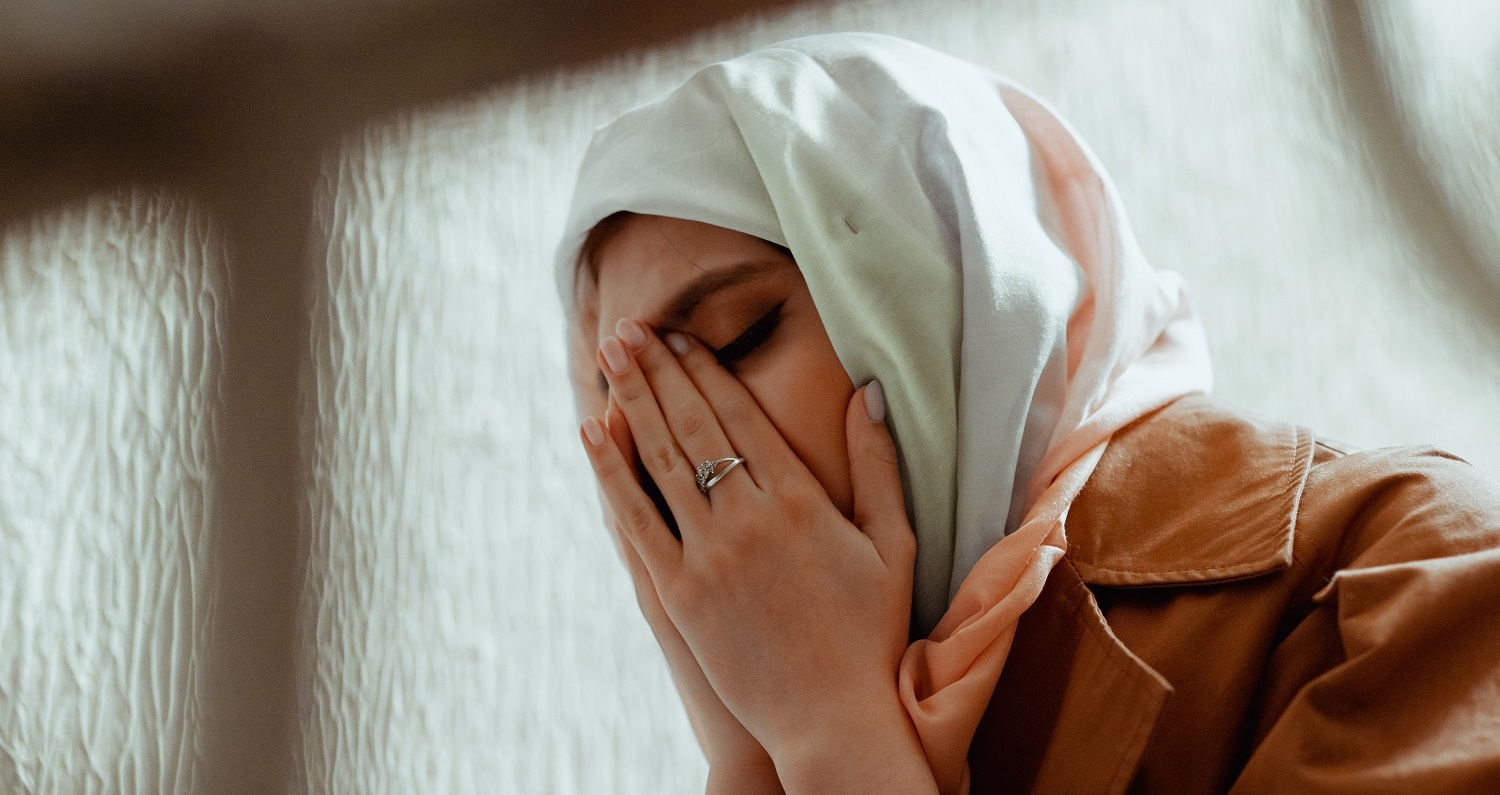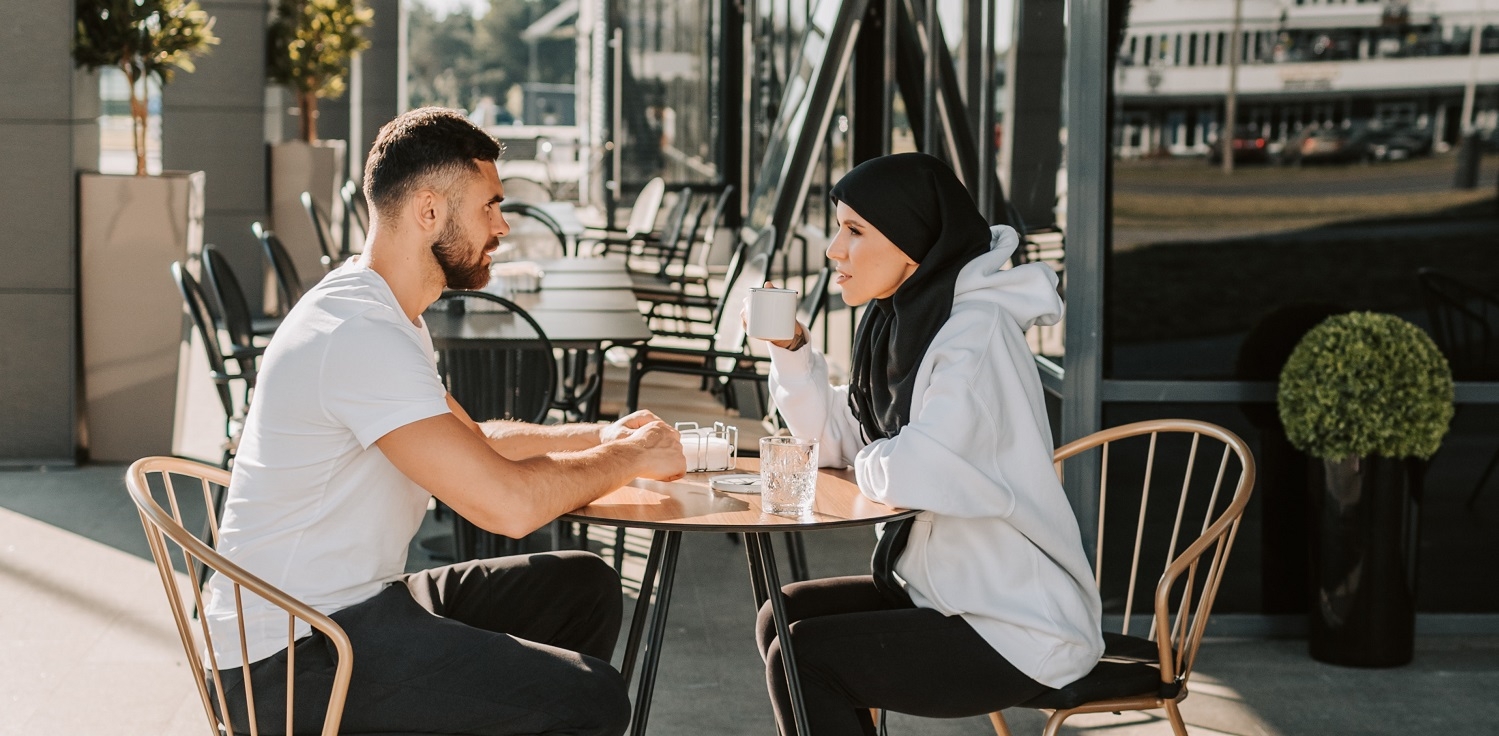The Problem of 'Not Taking Sides" with Post-Divorce Relationships & Domestic Abuse
Community
|
Nov 3, 2022
|
9 MIN READ

Image source: Vistaprint
Divorce can be an emotionally-painful experience impacting the couple, children, family, friends and even the community. With the dissolution of a marriage, the couple will adjust the levels of their once intimate relationship as well as their relationships with their children and everyone else in their lives.
The new dynamics between divorced parents and their children can be incredibly complex, including for adult children. It can be stressful, but individuals must ground all their relationships, including the ones they may have acquired as a couple, at one of the most formidable times in their lives – the dissolution of a marriage. These relationships may be the furthest from our minds as we try to negotiate and navigate so many things during the process of uncoupling, but how they play out becomes pretty significant to post-divorce life as time passes.
Figuring out post-divorce relationships is hard enough, but if you’re coming out of an abusive marriage, it may prove to be even more challenging to maintain connections when trying to survive and heal from abuse. In divorce, people either "pick a side" or attempt to stay neutral, which can lead to social isolation and further hardship. The fear of further heartbreak and abandonment of their family and friends makes it difficult for many abuse survivors to decide if they should even disclose the abuse to those unaware.
In Muslim communities, notions that a victim talking about their abuse experience is backbiting further encourages victims to remain silent, when in actuality, this isn’t necessarily true. Abusers rely on Muslim cultural messaging about covering one’s faults and not getting involved in what doesn’t “concern” you to maintain their image and ensure that victims won’t be heard.
So how should Muslim domestic violence survivors talk to their friends and families? What do you do about those in your life who want to remain “neutral?” What is the folly of "not taking sides?" for family, friends and community around a post-divorce couple when DV is part of the mix? I spoke with domestic violence advocate and counselor Sahar Abdulaziz about the dilemma of abuse survivors disclosing their experiences to family and friends and sharing their stories.
Who Should You Turn to for Help?

Image source: Pexels
Shrouds of secrecy constitute a significant component of abusive relationships. It is not uncommon for victims of abuse to hide their abuse for years. Those who are no longer in a relationship with their abuser must decide how much abuse they will disclose to those around them, leaving them vulnerable. Sahar explains the dynamics of shame and threats used by abusers to silence their victims.
“Abuse is about power and maintaining control,” she explains. “Therefore, an abuser will do whatever it takes to keep that power. The danger level intensifies when victims disclose their abuse because abusers dislike others knowing about their maladaptive behavior. An abused victim’s decision about disclosing their abuse to family and friends depends on many factors. One such factor is the shame involved – how the abuser made the victim believe the abuse was all their fault.”
More often than not, the disclosure also means additional threats from the perpetrator or the perpetrator’s support network, Shahar says. “These bullying tactics can be public or private, online or in-person. No place feels safe for victims when their abuser is determined to hurt them.
“Many victims also dread the social or community backlash when their abuser pleads their case in the public eye, coercing and manipulating mutual contacts to take sides or actively involve themselves in the confrontations,” she adds. “As a result, victims are subjected to endless attacks on their reputation, making disclosure a complicated decision.”
Another grim reality many victims face is that people will not believe them. Many abusers come off as nice, generous and noble to those around them, saving their abusive ways for their victims. As a result, people may not want to recognize the abuse.
“Abusers actively set out to make others see them as the virtuous, calm, kind, trustworthy person,” Sahar explains.
“Remember, abusers purposely set out to isolate and discredit their victims so their survivors will not benefit from having trusted individuals during times of threat. They will also ‘victim blame’ – another way to devalue the act [s] of abuse they have committed against their victim to avoid accountability, liability, and blame – and to save face in front of their supporters.”

Image source: Pexels
Because of these isolation and discrediting tactics, a victim may not receive the support and empathy needed from those in their inner circle (family, friends, faith communities). “Sadly, friends, family, and religious leaders aren’t always the best or safest choice,” says Sahar. If this is the case, victims should instead reach out to community resources where specially trained individuals are ready, willing and capable of handling all domestic abuse and sexual assault cases.
Unfortunately, victims may also find it difficult to get validation for their abuse from professionals, says Sahar.
“One would hope that social workers, therapists, and law enforcement personnel would not only believe abuse survivors,” she says, “but have the type of training to know how to best assist them. While this is happening more often, sadly, it is not always the case. Thankfully, national, state and local domestic violence agencies are equipped with specially trained individuals to meet abuse victims' specific and growing needs.
“It’s heartbreaking that not everyone will believe them or be willing to support or help protect them,” Sahar explains. “However, this lack of validation should not sway a survivor from seeking the help and support they rightly deserve.”
Sahar encourages abuse victims to think long and hard about who they select to disclose their abuse and to seek help from dedicated and extensively trained [domestic violence] professionals whenever they can do so safely. Hotlines and counseling are free and confidential, and the hotline is available 24/7.
Silence, Safety and Disclosing Abuse
A common misconception is that the abuse will stop once an abusive relationship ends. The opposite is true, unfortunately. Domestic violence victims often experience post-separation abuse, wherein perpetrators use tactics to maintain control and put their safety at risk. Abusers will inflict further coercion to keep victims from disclosing, jeopardizing them further.
“Victims who make the abuse public are taking a considerable risk because abusers are predators,” Sahar explains. “Abusers are often highly jealous, possessive, unpredictable, cruel, verbally abusive, controlling and reactionary. Some are also killers. They will harass, ridicule, coerce, intimidate, isolate and try to silence their victims, triggering mental, emotional and physical distress.

Image source: Pixabay
“Most abusers will do or say anything to preserve power and control over their victims, which can translate to escalated stalking, threats, intimidation tactics, physical violence or [even] homicide (murder),” she says. Since no one can accurately predict what will or will not occur because of the disclosure, all abuse victims must stay acutely aware of these dangers by assessing their situation's risk factors and danger level before telling about or leaving an abusive relationship.
So is it better, then, to stay silent? There is no simple yes or no answer. For instance, Sahar points out that the threat of more abuse will result in victims remaining silent.
“Some victims decide to remain silent. Non-disclosure is standard among survivors of domestic and sexual abuse. They know from experience the danger they are in, knowing their safety depends on absolute concealment and silence. No one should question survivors' motives for remaining quiet about their abuse. They, and they alone, know the extent of the danger.”
Neutrality, Backbiting and Choosing Sides
For Muslim abuse victims who disclose their abuse to family, friends or their larger community, they may face harsh comments, criticisms or even accusations of backbiting. Backbiting is a serious offense in Islamic teachings with grave punishments, prompting many Muslims to avoid it at all costs. Allah (S) says in the Quran:
Indeed, those who like that immorality should be spread [or publicized] among those who have believed will have a painful punishment in this world and the Hereafter. And Allah knows and you do not know.
[Surah Nur 24:19]
The fear of backbiting may lead people to shut down victims of domestic violence, preventing them from speaking out. Moreover, people may dismiss victims based on their relationships with the abuser, claiming they want to stay neutral even when informed about the abuse. All of this, however, is problematic and even harmful to abuse victims.
“For some, it is fear; others have been conditioned to mind their own business in personal affairs,” Sahar explains. “Too many have been gaslighted by leaders and members in their belief communities to equate sinful backbiting with actual proactive protection for abuse victims.
“Disclosing abuse is nothing close to backbiting,” Sahar says. “Backbiting is a malicious, slanderous, defamatory conversation about someone to denigrate them out of spite. In contrast, disclosure about abuse concerns a survivor’s human right to seek help, justice, intervention and remedy to combat and self-protect during a dangerous, possibly lethal situation.” To equate the two is ridiculous, she says, and is a form of gaslighting victims of abuse.
It pressures victims to stay quiet and keep the abuser’s dark evil secrets which only serves to maintain the abuser’s position of power,” Sahar says.
Then there is the decision for surrounding people to remain “neutral” when it comes to a couple getting divorced and dealing with abuse. Sahar asserts that people claiming to be neutral are taking the side of the abuser.
“There is no such thing as ‘not taking sides’ when an abuse victim discloses,” Sahar says. Either the listener believes the victim and will help, or they disregard what they have been told. Either way, they decide whether to be on the side of truth or malignancy.”
She explains that some people, “side with the abuser because they have something to gain (money, positions of power) or maintain a status quo (friendship, social standing, romance, familial allegiance.)
“No matter the reason, it is never okay to side with an abuser, a predator, and a criminal.”
How We Can Better Support DV Survivors

Image source: Pexels
A domestic violence survivor disclosing their abuse to you can be overwhelming, and you may find it hard to think of what to say. Sahar shared some supportive things to say to avoid further harm at a vulnerable time in a victim’s life.
(Trying to leave an abusive relationship or have a loved one who is suffering from domestic abuse? As Muslims, here’s how we can help.)
“If someone trusts you enough to disclose their abuse, listen carefully,” she says. “Offer immediate support and reassurance. [You can say things like]:
- I believe you.
- You are not to blame for what happened to you.
- You didn’t deserve to be treated this way.
- I am sorry this happened to you.
- I support you in your healing process.
- You are not alone, and support is out there.
“Listen without judgment and trust that what they are bravely confiding is true. Acknowledge the abuse and how it has affected their lives,” Sahar says. If possible, encourage them to reach out to community resources (crisis hotlines, support groups, mental health services, DV shelters or anything else they require to help devise a safety plan to escape their domestic violence situation).”
Stand With Survivors
Unfortunately, many victims will find themselves isolated and without family or community support to validate them. They may not even be able to believe themselves, especially after extensive manipulation and coercion. Sahar advises people to not be so quick to dismiss victims and not prioritize their personal comforts, but instead stand with survivors.
“Part of a survivor’s healing journey is validation. To be believed,” she says. “They have been gaslighted, ridiculed, demeaned and soulfully crushed for so long. Once they decide to disclose or move on, the victim needs emotional and spiritual help.”
Those who downplay, ignore or deny the abuse are part of the problem. Their lack of integrity to do what is right in the face of inherent evil should not be excused, no matter what their relationship is with the abuser, she says. Willingly hiding the truth to discount or disregard the abuse to keep their relationship with the abuser is indefensible. Yet, people do it all the time.
It is incumbent on all family members, friends, spiritual leaders, community partners, and colleagues to stand up for abuse victims rather than turning the other cheek or siding with the abuser. Nobody is saying it’s easy – or even always safe, but to do otherwise is morally bankrupt.
“We are an ummah with a mandate from Allah (S) to stand for justice even if it is against ourselves, our parents or close relatives. Therefore, when learning about the oppressive harm of abuse inflicted on a fellow believer, we should not cower and whimper about “not taking sides.” Instead, we must be firm and supportive of survivors, no matter our relationship with the abuser.
Sahar Abdulaziz is an award-winning suspense author and domestic violence/sexual assault counselor advocate. Her work covers a wide range of topics, including mood disorders, marital and family dysfunction, domestic violence, oppression, but most of all – survivorship. You can reach out to her on email | Facebook | Twitter/Instagram: @saharraziz | Website.
Subscribe to be the first to know about new product releases, styling ideas and more.
What products are you interested in?

